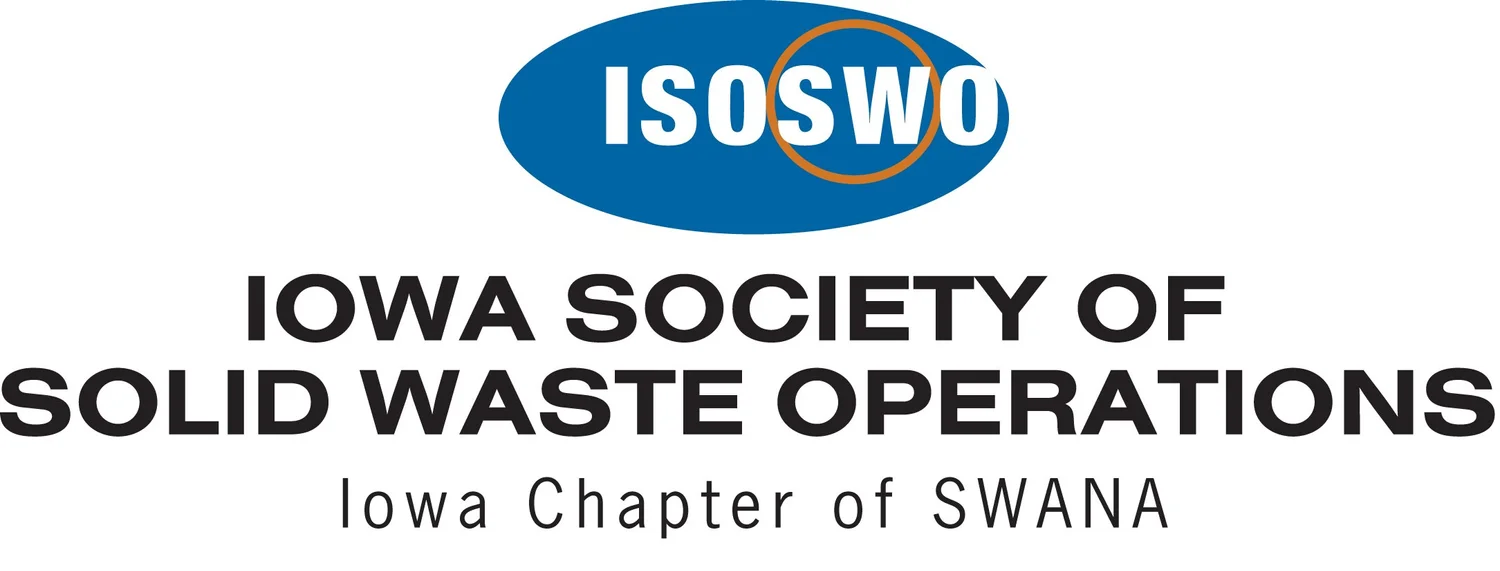Legislative Committee
About the Committee
It is the policy of ISOSWO to educate its members and government decision makers, and to advocate for responsible and practical public policy in support of ISOSWO’s core values and mission. ISOSWO has established a Legislative Committee to provide this service by advocating for state laws and policies that will benefit the solid waste and resource management industry.
Committee Chair: John Foster
Annual Legislative Breakfast
ISOSWO’s Legislative Breakfast is scheduled for March 11, 2026, at the Capitol Rotunda. The Legislative Breakfast is an annual event hosted by ISOSWO in partnership with the Iowa Recycling Association (IRA). The event provides a relaxed setting for ISOSWO members to meet with their lawmakers and discuss issues that are important to the solid waste and resource management industry.
A copy of ISOSWO’s 2025 Legislative Positions can be found here.
Iowa Battery Stewardship Bill
When disposed of improperly, certain household batteries can spontaneously catch fire or explode causing significant health and safety risks to frontline solid waste workers. The occurrence of battery fires has increased in recent years at Iowa’s landfills, at recycling facilities, and within refuse hauling vehicles. For this reason, ISOSWO has partnered with the National Waste and Recycling Association (NWRA) and the Iowa Recycling Association (IRA) to develop a new Iowa Battery Stewardship Bill to help address this issue. ISOSWO will continue to work with our partners to move this proposed legislation forward during the 2026 legislative session.
The following outlines the main components of ISOSWO’s proposed Iowa Battery Stewardship Bill:
Covered batteries sold in the state must be labeled to include the identity of the producer, the chemistry of the battery, and an indication that the battery shall not be disposed of as household waste.
To sell covered batteries in the state, a producer must form or join a Battery
Stewardship Organization. Battery Stewardship Organizations are responsible for fully funding their programs including collection, sorting, transportation, disposal/recycling, administrative costs, and regulatory oversight.
Covered batteries include all non-rechargeable batteries less than 4.4 pounds and all rechargeable batteries less than 11 pounds, and with a rating less than 300 watt-hours, with some exclusions. The bill also covers most medium format batteries.
Battery Stewardship Organizations are responsible for providing the collection of all covered batteries on a free, continuous, convenient, visible, and accessible basis.
Battery Stewardship Organizations are responsible for developing education and outreach materials for the implementation of their program.
Battery Stewardship Organizations must develop a Battery Stewardship Plan and submit the plan for approval to the Iowa DNR. Battery Stewardship Plans are required to include the following:
Names and contact information for each producer covered under the plan and brands that are sold by each producer covered under the plan.
Performance goals for targeted collection rates.
Process for educating retailers of their requirements.
Consumer awareness goals and an outline of education/outreach strategies.
Locations of collection sites that are used under the plan and an outline of the Battery Stewardship Organization’s obligations to the collection facilities.
Once a plan is implemented, a Battery Stewardship Organization will be required to submit an annual report to the Iowa DNR that provides information and data on various aspects of their program.
The current version of ISOSWO’s proposed Iowa Battery Stewardship Bill can be found here.



